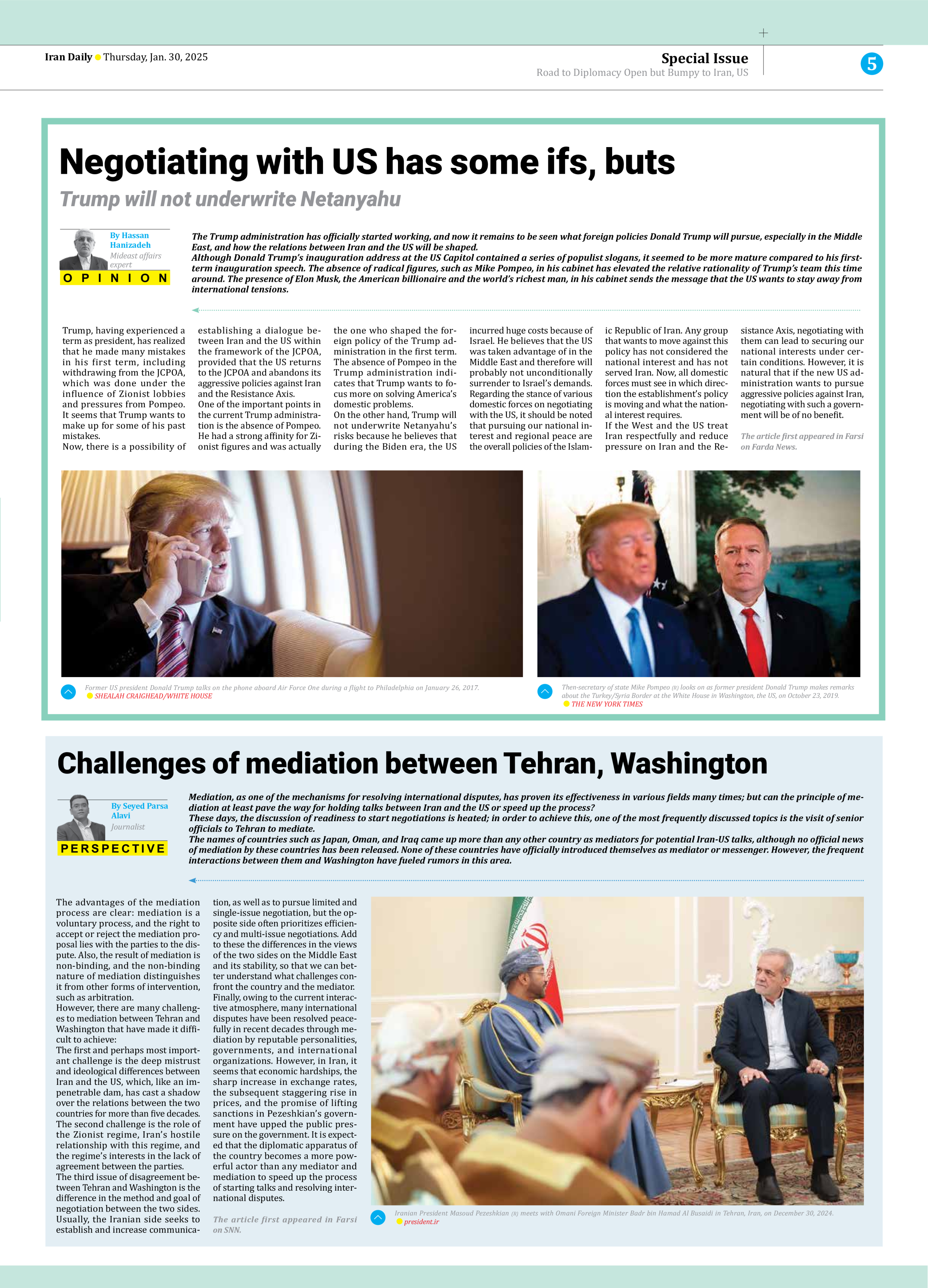
Challenges of mediation between Tehran, Washington
Mediation, as one of the mechanisms for resolving international disputes, has proven its effectiveness in various fields many times; but can the principle of mediation at least pave the way for holding talks between Iran and the US or speed up the process? These days, the discussion of readiness to start negotiations is heated; in order to achieve this, one of the most frequently discussed topics is the visit of senior officials to Tehran to mediate. The names of countries such as Japan, Oman, and Iraq came up more than any other country as mediators for potential Iran-US talks, although no official news of mediation by these countries has been released. None of these countries have officially introduced themselves as mediator or messenger. However, the frequent interactions between them and Washington have fueled rumors in this area.
By Seyed Parsa Alavi
Journalist
The advantages of the mediation process are clear: mediation is a voluntary process, and the right to accept or reject the mediation proposal lies with the parties to the dispute. Also, the result of mediation is non-binding, and the non-binding nature of mediation distinguishes it from other forms of intervention, such as arbitration.
However, there are many challenges to mediation between Tehran and Washington that have made it difficult to achieve:
The first and perhaps most important challenge is the deep mistrust and ideological differences between Iran and the US, which, like an impenetrable dam, has cast a shadow over the relations between the two countries for more than five decades.
The second challenge is the role of the Zionist regime, Iran’s hostile relationship with this regime, and the regime’s interests in the lack of agreement between the parties.
The third issue of disagreement between Tehran and Washington is the difference in the method and goal of negotiation between the two sides. Usually, the Iranian side seeks to establish and increase communication, as well as to pursue limited and single-issue negotiation, but the opposite side often prioritizes efficiency and multi-issue negotiations. Add to these the differences in the views of the two sides on the Middle East and its stability, so that we can better understand what challenges confront the country and the mediator.
Finally, owing to the current interactive atmosphere, many international disputes have been resolved peacefully in recent decades through mediation by reputable personalities, governments, and international organizations. However, in Iran, it seems that economic hardships, the sharp increase in exchange rates, the subsequent staggering rise in prices, and the promise of lifting sanctions in Pezeshkian’s government have upped the public pressure on the government. It is expected that the diplomatic apparatus of the country becomes a more powerful actor than any mediator and mediation to speed up the process of starting talks and resolving international disputes.
The article first appeared in Farsi
on SNN.







